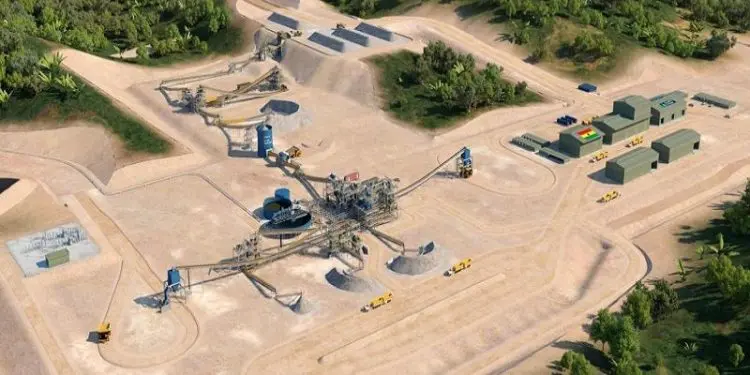
The Government of Ghana has begun renegotiating the country’s first-ever lithium mining agreement following a dramatic crash in global prices, prompting concerns over the financial viability of the landmark Ewoyaa Lithium Project.
The deal, signed with Barari DV Limited—a subsidiary of Australia’s Atlantic Lithium Limited—is under fresh review as market prices for lithium have plunged by more than 80% since their 2022 peak, dropping from $3,000 to just under $675 per tonne, a level that now aligns with production costs.
Lands Minister Emmanuel Armah-Kofi Buah confirmed that a revised memorandum is being prepared for Cabinet and Parliament, aimed at safeguarding the project’s future amid challenging economic conditions.
The renegotiation follows a formal request from Barari DV Ghana Ltd., citing the price collapse and its impact on the project’s financial model.
“Considering prices dropped from $3,000 to $600 per tonne, reviewing lease terms is essential for competitiveness,” said Ahmed Dasana Nantogmah, Chief Operating Officer of the Ghana Chamber of Mines.
He expressed confidence that Parliament would fast-track approval of the new terms once it reconvenes, after pausing for the 2024 elections.
Though Parliament had not yet ratified the original 15-year lease agreement, the project has remained central to Ghana’s mineral development strategy.
In 2024 alone, mineral exports generated $11.9 billion, outstripping revenues from crude oil, cocoa, and remittances. Mining accounted for 58.4% of total export earnings, according to the Bank of Ghana.
The sector also contributed significantly to government revenue, with companies paying GH¢17.7 billion in taxes—representing 24.3% of domestic tax income. Furthermore, mining firms repatriated $4.9 billion, or 70.8% of $7.1 billion in total mineral revenue, through Ghana’s banking system.
“These proceeds remain vital for foreign exchange liquidity,” noted Ghana Chamber of Mines CEO Dr. Kenneth Ashigbey. He also revealed that 358,218 ounces of gold were sold to the central bank under the Domestic Gold Purchase Programme in support of Ghana’s reserve strategy.
As global markets continue to fluctuate, Ghana’s re-evaluation of the Ewoyaa Lithium Project underscores the government’s intent to ensure long-term sustainability and strategic value from its mineral resources.



